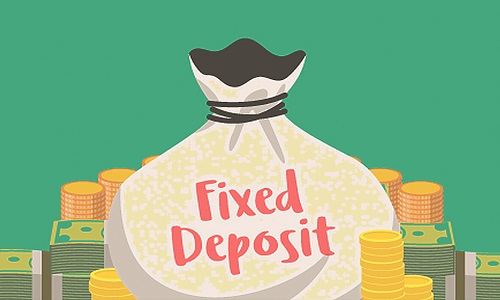- +91 9310097050
-




Fixed income products forms the base of a financial plan. If the base is not strong whatever we build upon it is under risk of collapse, therefore by allocating a higher quanta of funds towards fixed income products improves the overall stability of a portfolio.
Choosing between investing in a fixed deposit or an investment bond requires careful deliberation, and evaluation of the advantages and disadvantages of both these investment vehicles. The success of any investment tool ultimately depends on how well it meets your requirements.

Corporate FD in companies that earn a fixed rate of return over a period of time are called Company Corporate FD. Financial institutions and Non-Banking Finance Companies (NBFCs) also accept such deposits. Deposits thus mobilised are governed by the Companies Act under Section 58A. These deposits are unsecured, i.e., if the company defaults, the investor cannot sell the documents to recover his capital, thus making them a risky investment option.
1.High interest.
2.Short-term deposits.
3.Lock-in period is only 6 months.
4.No Income Tax is deducted at source if the interest income is up to Rs 5,000 in one financial year
5.Investment can be spread in more than one company, so that interest from one company does not exceed Rs. 5,000
Like most investment option, Company Corporate FD are a mixed bag. Company FDs can be an interesting investment option if you know how to select the right FD, and how to avoid the no-so-good ones. Here are some of the points that investors should keep in mind.
The deposits should be spread over a large number of companies engaged in different industries. This way, you’ll be able to diversify your risk among various industries/companies.
Try not to put more than 10% of your total investments in one particular company. Choose the Right Period of Deposit Ideally, the investment should be for 1 to 3 years depending upon the rate of interest.
The performance of the companies should be reviewed at maturity. This will help you decide whether to renew or reshuffle the deposit. It is also wise to keep a track of these companies by checking their share prices, annual reports and other details reported in newspapers.


Disclaimer:-Mutual Fund Investments are subject to market risks.
Please read all offer documents carefully before investing.
VM Invest
1E/8, First Floor, Jhandewalan Extn.,
New Delhi – 110055 INDIA
Copyright © VM Invest . All rights reserved.
Risk Factors – Investments in Mutual Funds are subject to Market Risks. Read all scheme related documents carefully before investing. Mutual Fund Schemes do not assure or guarantee any returns. Past performances of any Mutual Fund Scheme may or may not be sustained in future. There is no guarantee that the investment objective of any suggested scheme shall be achieved. All existing and prospective investors are advised to check and evaluate the Exit loads and other cost structure (TER) applicable at the time of making the investment before finalizing on any investment decision for Mutual Funds schemes. We deal in Regular Plans only for Mutual Fund Schemes and earn a Trailing Commission on client investments. Disclosure For Commission earnings is made to clients at the time of investments.
AMFI Registered Mutual Fund Distributor – ARN- 134913 | Date of initial registration ARN – 16-Dec-2017 | Current validity of ARN – 10-Dec-2026
Grievance Officer- Vinay Maheshwari | lic.maheshwari@gmail.com
Copyright 2024. Company name. Important Links | Disclaimer | Disclosure | Privacy Policy | SID/SAI/KIM | Code of Conduct | SEBI Circulars | AMFI Risk Factors